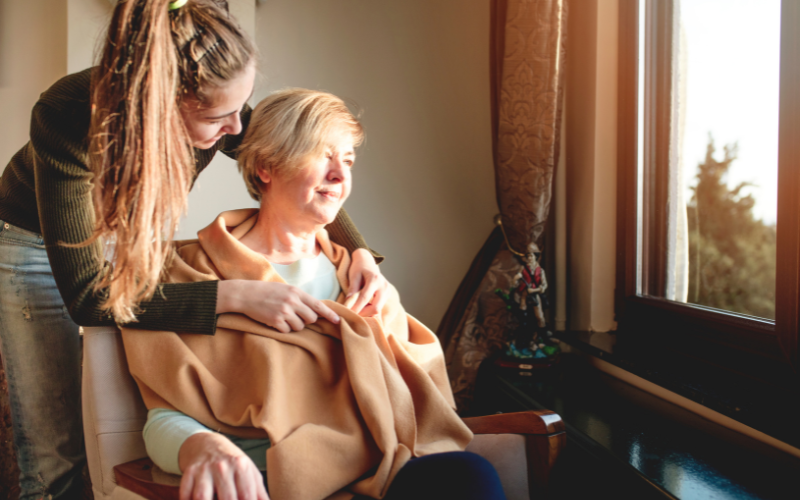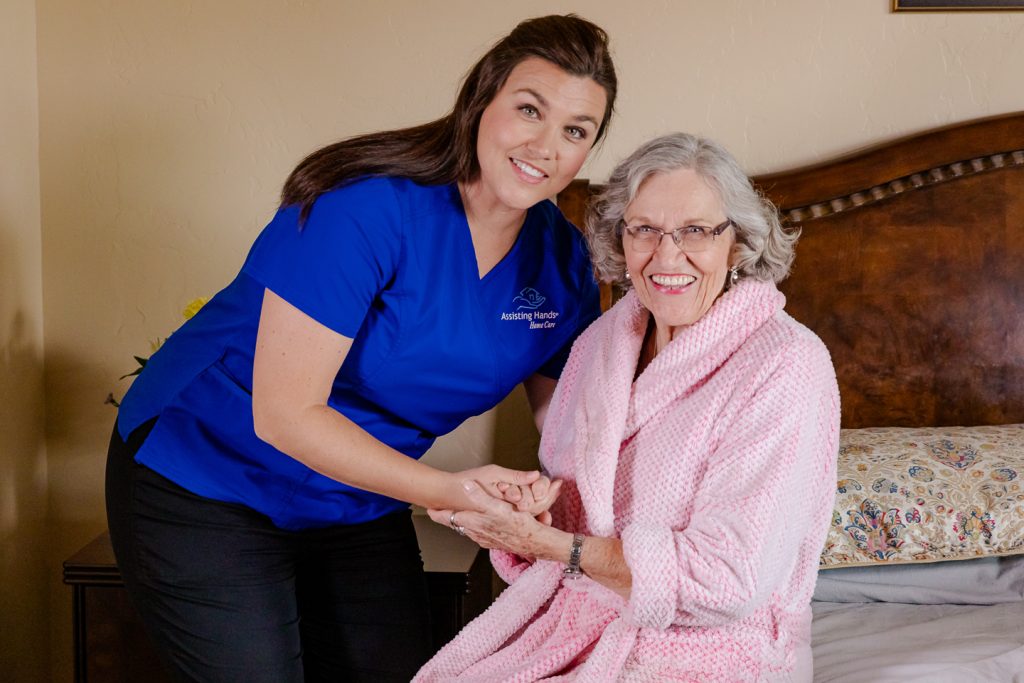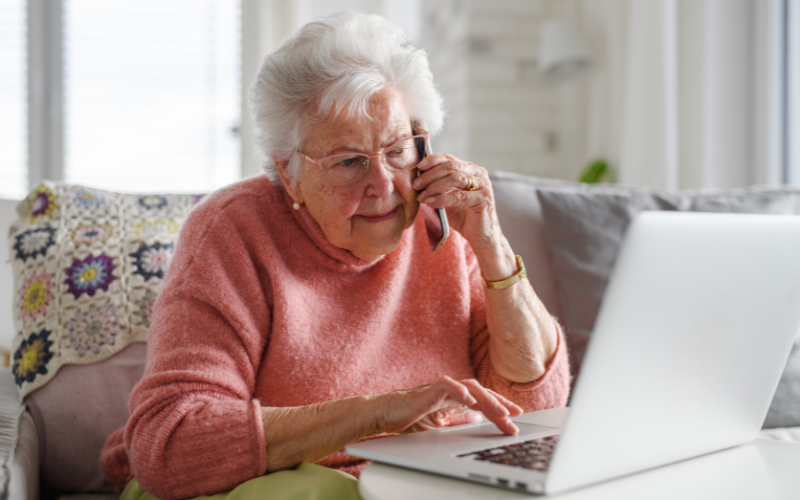
Older people tend to feel colder more often due to a number of age-related causes. Caregivers who notice their elderly loved ones feeling the shivers can take the following steps to keep them warm and preserve both their health and safety during the blistery winter weather.
Why do seniors tend to feel cold?
As people age, their skin and the layers of fat underneath naturally thin. The aging process also leads to decreased muscle mass. This combination reduces seniors’ natural barriers against the cold air. As a result, it’s no wonder they feel colder than younger people.
Metabolism slows with age, too. The metabolism is responsible for breaking down food and turning it into the energy the body needs to regulate its temperature. When the aging person’s metabolism is slower, their body has less energy to generate heat.
Poor blood circulation may also be responsible for causing seniors to feel colder than usual. Older people commonly experience issues with blood pressure and blood circulation. A decrease in either makes it harder for blood to reach their extremities, leading to feeling the chills.
How do seniors stay warm?
1. Wear warm clothing
The first solution to increasing bodily warmth in winter is to wear layers of clothing. Wearing multiple layers results in warmth because the loose clothing traps warm air between them. Dress for winter weather: Wear a hat, scarf, and gloves and opt for a waterproof coat in rainy conditions.
2. Use electric or fleece blankets
Winter weather sends chills to seniors even in the comfort of their home. Address the cold at night by cozying up under an electric or fleece blanket. Newer electric blankets offer adjustable heat settings, but blankets 10 years or older come with fire risks that caregivers should be aware of.
A safe alternative to an electric blanket is a fleece blanket. Made of soft fabrics, fleece blankets can achieve a similar level of warmth. The key to heightened warmth is to use the fleece blanket in combination with other layers of bedding, such as down comforters.
3. Turn on a space heater
Especially in a drafty home, seniors can feel cold while knitting, reading, or watching television. Address their chills by turning on a space heater. The instant heat quickly warms up a small space. However, caregivers should monitor the heater for fire safety reasons.
4. Serve hot beverages and soups
The winter months are a little less frigid when caregivers serve the elderly warm beverages, like hot cocoa, decaffeinated herbal tea, or coffee. Hot liquids, including hearty soups, not only deliver health benefits and warmth, but soothe the senior during the long, cold winter.
5. Run a humidifier
Humid air feels warmer than dry air, making a humidifier a practical investment for a senior who tends to feel the chills. A humidifier with a warm temperature setting provides warmth and increases the older adult’s comfort. Additional benefits include alleviating dry skin and relieving sinus symptoms.
6. Raise the thermostat
Remember to check the thermostat if the senior continues to feel cold. Older people may hesitate to increase the indoor temperature due to the high costs of heating their home. The safest temperature for seniors is 78 degrees Fahrenheit. The room should never fall below 65 degrees Fahrenheit.
A cold bedroom interferes with sleep quality. A comfortable temperature is critical because seniors do not move around enough to raise their body temperature while asleep. Plus, a bedroom temperature lower than 65 degrees Fahrenheit is dangerous for a senior who remains there for several hours.
7. Check for drafts and insulation
Heat is easily lost through the roof, walls, windows, and doors without adequate insulation. Check for sufficient insulation so that heat does not escape the home. Seal the doors and windows to prevent drafts. Keep curtains closed to trap heat.
8. Stay active
Engaging in physical activity at regular intervals is a great way for older people to stay warm during the winter months. Even seniors with limited mobility can remain active by performing light housework, playing a board game, or doing simple exercises while seated in a chair.
Aging adults who are capable of more vigorous workouts should plan ahead. Check the forecast for rain or ice. If the weather conditions are too dangerous, move the workout indoors. Follow an online senior exercise tutorial or commit to a personal exercise routine instead.
Seniors who want to take their exercise outdoors in winter are advised to be vigilant around snow and icy sidewalks. Fall risks increase under these conditions, so wear sturdy shoes for proper footing. Consider walking with a caregiver who can provide physical support.
When wintry weather arrives, it’s crucial for the safety of the senior to maintain warmth and heat. Combined with the in-home care from a companion caregiver at Assisting Hands Home Care, the abovementioned tactics keep older adults comfortable and warm.

Reliable home care is essential for seniors who aim to age in place. Services include medication reminders and transportation to local community destinations, like therapy sessions, older adult exercise classes, or the post office. We assist with personal hygiene tasks and light housekeeping.
Home care services include healthy meal preparation. Caregivers serve seniors hot beverages and nutritious soups to keep them healthy and warm in winter. We schedule exercise into each day and provide the support the elderly need to maintain confidence as they walk around the neighborhood.
Senior companionship provides the elderly with vital opportunities for socialization. Our professionals play games, encourage hobbies, and take seniors on outings to help them stay socially engaged and active in their community. Staying social prevents feelings of isolation, loneliness, and depression.
Assisting Hands Home Care is the solution for seniors who need extra help at home. Our reputable home care agency serves the communities around Frisco, TX | Plano, TX | Allen, TX | Little Elm, TX and Prosper, TX. Call us at (214) 609-1340 to schedule a complimentary in-home consult and learn how senior home care complements aging and gives the elderly a higher quality of life.







